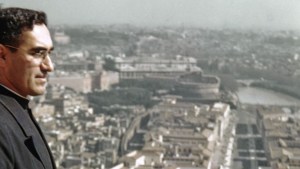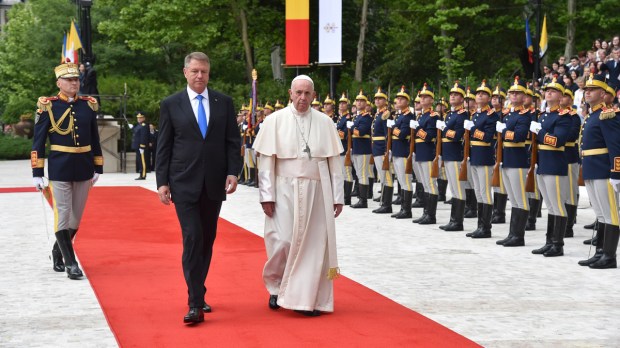Pope Francis drew on St. Paul’s Letter to Timothy to urge the faithful to pray for politicians, and not only the ones we agree with.
In his morning homily at Domus Sanctae Marthae, the Holy Father spoke of 1 Timothy 2:1-8, where St. Paul urges prayer for kings and authority, without anger or argument.
Paul emphasizes the environment surrounding the believer: prayer. Here he focuses on intercessory prayer: ‘Everyone should pray, for all, so that we may lead a quiet and tranquil life, in dignity and devotion to God.’ Prayer helps make this possible. But there is an emphasis I would like to talk about: ‘For everyone’ and then he adds ‘for kings and for all in authority.’ So, he is talking about prayer for people in government, for politicians, and for the people responsible for political institutions, nations, and regions.
The pope noted that instead of prayer, politicians generally receive either praise or insult.
But for those entrusted with such a weighty responsibility, the pope said, “How can we leave them alone, without asking God to bless them?”
The pope then recalled the recently resolved crisis in the Italian government, and remarked:
It seems that the patriotic spirit doesn’t reach into prayer. Sure, criticism, hate, fighting, and it ends there. ‘It is my wish, then, that in every place people should pray, lifting up holy hands, without anger or argument.’ Discussion must happen, and this is the role of parliament. Discussion must occur, but without annihilating the other. Rather, each must pray for the other, for those who have a different opinion than I do.
Pope Francis suggested that no politician is too corrupt to be prayed for.
He added that although some people think politics itself is dirty, Pope Paul VI referred to the profession as a highest form of charity.
It may be dirty, just like any profession can be dirty… We are the ones who dirty something but it is not so by nature. I believe that we must convert our hearts and pray for politicians of all stripes, all of them! Pray for people in government. This is what Paul asks of us. As I listened to the Word of God, I thought about this beautiful event from the Gospel – the person in authority who prays for one of his underlings: the centurion who prays for his servant. Even people in government must pray for their people, and this man prays for his servant, who may have been a domestic servant. ‘But no, he is my servant. I am responsible for him.’ People in government are responsible for the life of their country. It is good to think that, if people pray for authorities, people in government will be capable of praying for their people, just like this centurion who prays for his servant.

Read more:
When the world’s unmet needs are overwhelming, the Archbishop Romero Prayer keeps us steady

